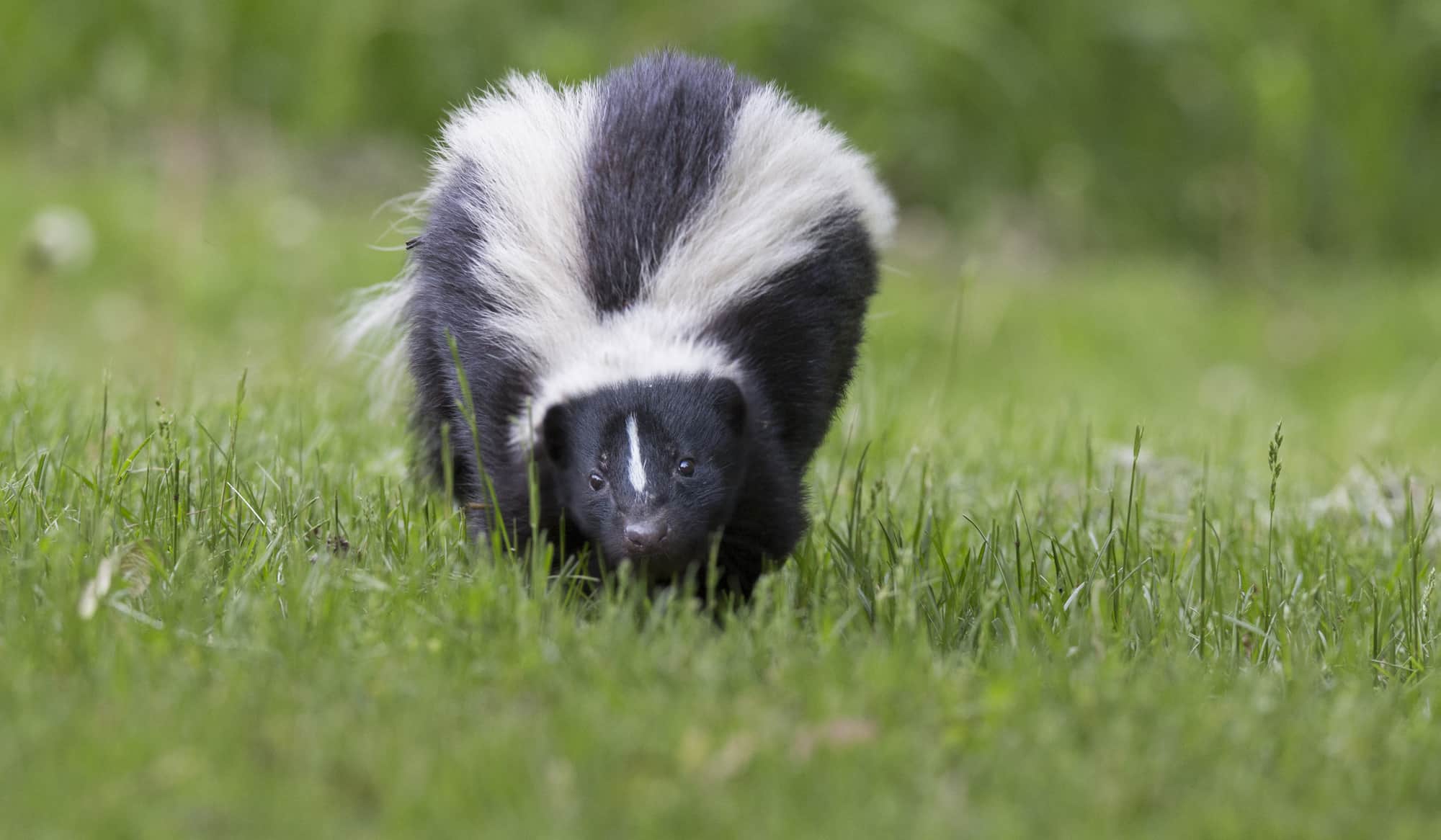Skunks are famous for spraying a foul-smelling fluid as a defense against predators. To a human, the spray is irritating but not really harmful. However, it can be dangerous to a cat, which is why you may need professional skunk removal in Richmond Hill to protect your pet.
How Many Times Can a Skunk Spray?
A skunk can spray up to six times at once to defend itself. When it has used up its reserves, the glands in its body that produce the fluid require another week and a half to make more. During this time, the skunk is vulnerable, which is why skunks give plenty of warnings of their intentions and only spray as a last resort.
How Common Is It for a Cat To Be Sprayed by a Skunk?
Thankfully, it is a relatively rare occurrence for a cat to be sprayed by a skunk. Cats have a high prey drive and like to hunt even if they are not hungry. However, skunks and cats are about the same size, so cats might not see skunks as prey, and skunks may not see cats as a potential threat.
Cats are wary, high-strung creatures. The warning signals given by a skunk may be enough to startle it away. Dogs, especially larger breeds, are more likely than cats to get sprayed by a skunk because they may mistake the warning signals as an invitation to sniff and start making friends.
Cats are more likely to get in trouble with skunks if they come upon a den of skunk babies. The smaller babies may look like toys or snacks to a cat, which may get closer to investigate, while the mother skunk may use her spray to protect her babies.
How Does Skunk Spray Affect Cats?
Skunk spray irritates the mucous membranes that line the inside of the mouth, nose, and eye sockets. Skunks purposely aim their spray at a perceived attacker’s face, and they are very accurate. A cat that has inhaled some of the fluid may start displaying symptoms of sneezing or vomiting. The eyes could become swollen, and the cat may have vision problems. As if the effects of the spray weren’t bad enough, the cat may reflexively rub its face with its paws to try to relieve the pain and do itself further injury in the process.
If a cat gets too close, a skunk may also bite in self-defense. Skunks are common carriers of rabies, so it is important to keep your cat’s vaccinations up to date.
What Should You Do if Your Cat Gets Sprayed?
If your cat gets sprayed by a skunk, you should take it to the veterinarian as soon as possible. If you can’t get your cat to the vet right away, you can try to remove the smell from its fur to make it more comfortable and to make caring for it easier for you. Veterinarians recommend treating your cat’s fur with a solution of the following:
- One quart hydrogen peroxide
- One-quarter of a cup of baking soda
- One to two teaspoons of baby shampoo
Do not get the concoction into your cat’s eyes.
How Can You Protect Your Cat?
The best way to protect your cat from skunk spray is to keep it indoors. If this is not possible, have someone go with your cat when it goes outside or do it yourself. At least turn on the yard light before letting your cat out at night to scare skunks away.
Another good way to protect your cat is to discourage skunks from your property. You can do this by keeping your yard clean and keeping trash receptacles sealed securely. Treat your lawn for grubs as these are one of the skunks’ favourite foods. Bring in pet dishes at night.
If you have skunks on your property, call Skedaddle to remove them safely and keep them from coming back.




